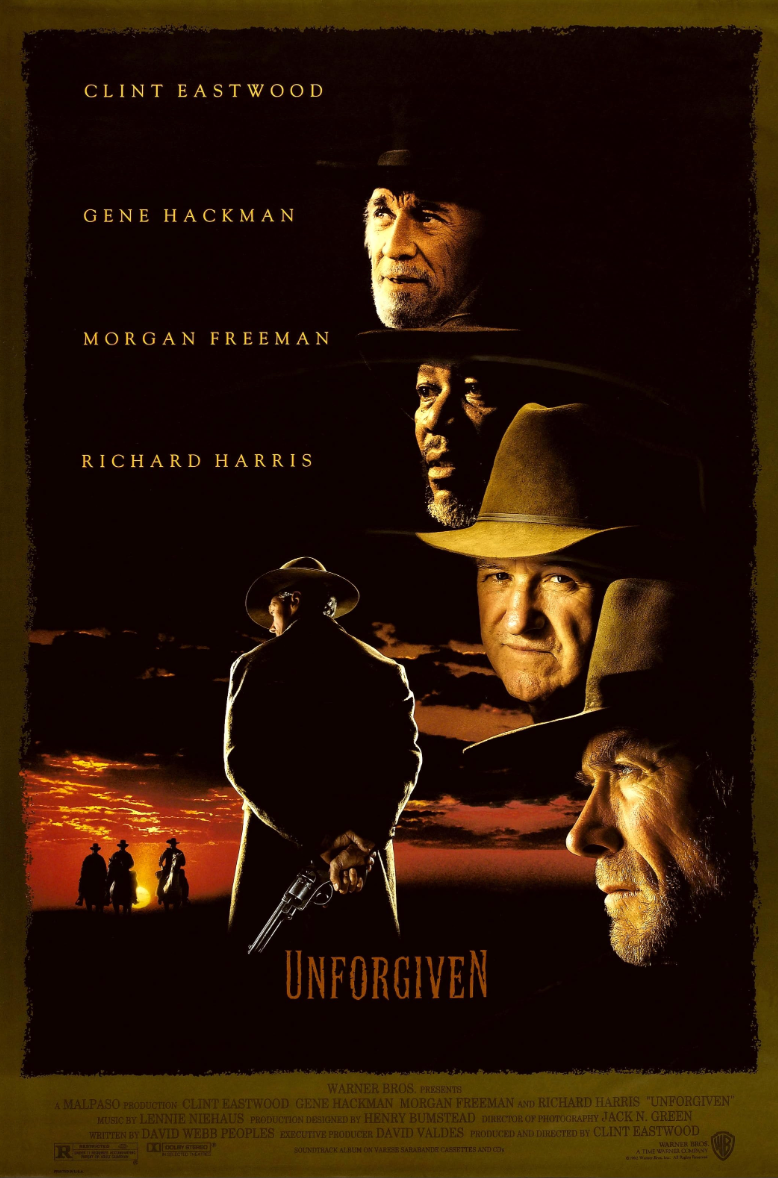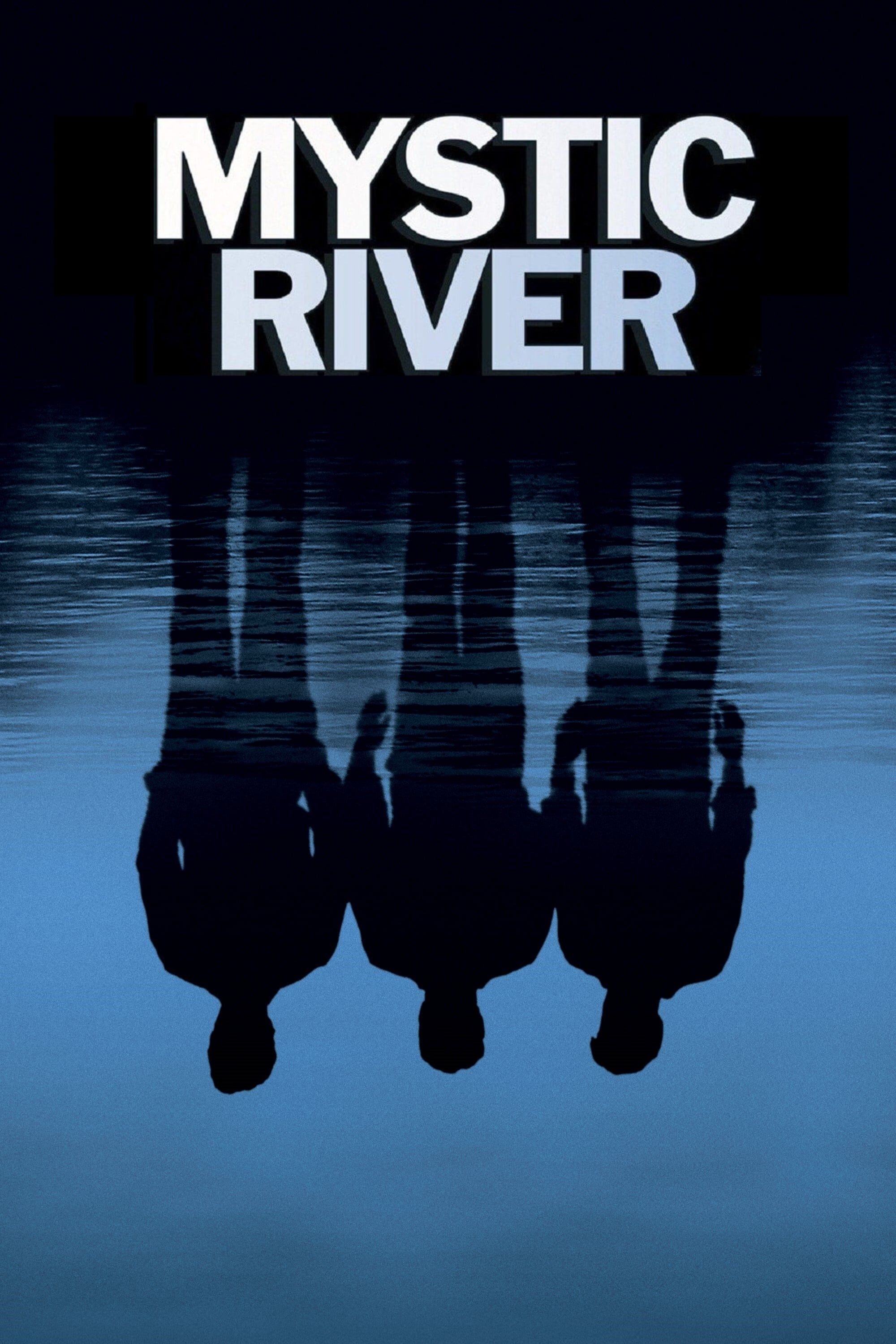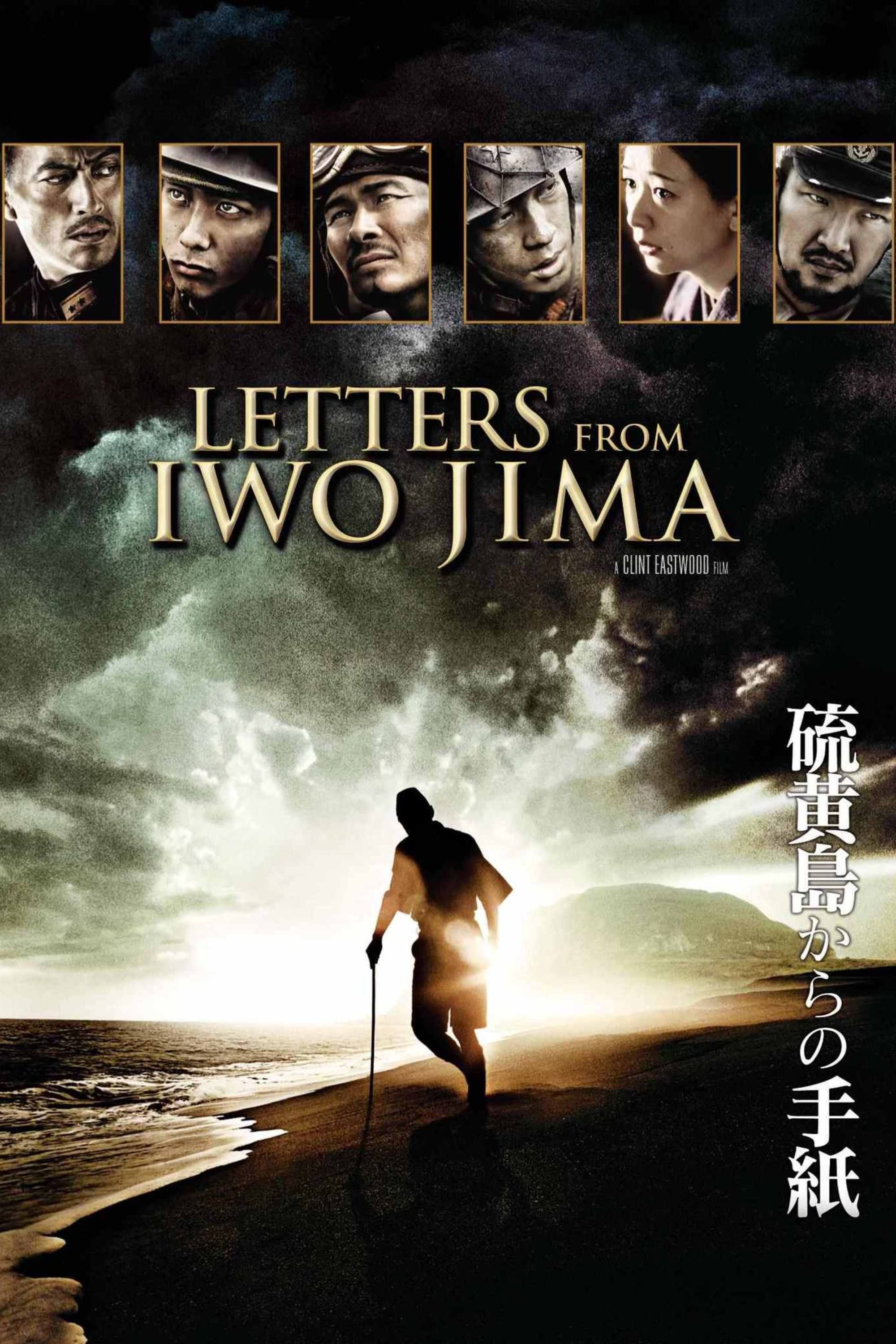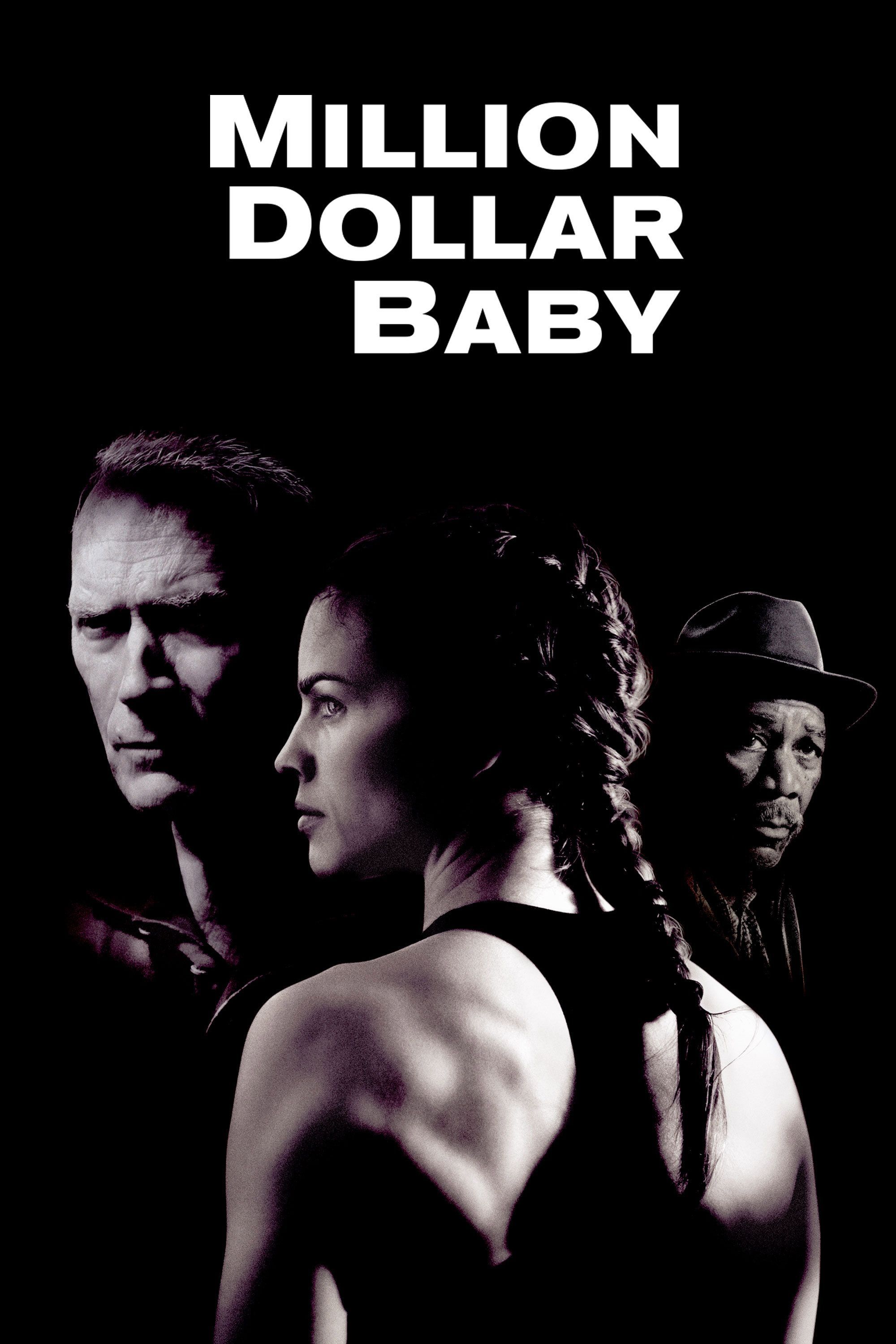Clint Eastwood has earned his reputation as one of Hollywood’s all-time greats and has been honored with several Academy Award nominations for his acclaimed films. The list of Academy Award nominations across all categories of movies Eastwood has been involved in would be an extraordinarily long one, but when it comes to nominations and wins related specifically to Eastwood and not the various actors, producers, editors, or writers he’s worked with, the number stood at just five films. This included his personal nominations and wins for Best Picture, Best Director, and Best Actor across his more than 60-year career.
While many will know Eastwood as the legendary Man with No Name in Sergio Leone’s Dollars Trilogy, many of Eastwood’s best films featured him behind the camera in the director’s chair. From astounding explorations of trauma and grief to foreign language films addressing the complexities of warfare, Eastwood has continually pushed himself toward artistic greatness and has gained many accolades for his work. With several Oscars to his name, Eastwood has been an essential figure in Hollywood throughout the 20th and 21st centuries.
5 American Sniper (2014)
Clint Eastwood was nominated for Best Picture
American Sniper was a powerful late-career hit for director Clint Eastwood that has remained his highest-grossing film yet, taking in over $547 million at the global box office. The film told the story of the deadliest marksman in United States military history, Chris Kyle, who claimed 255 kills from four tours in the Iraq War (via Navy SEAL.) American Sniper explored how this celebrated soldier struggled to adjust to life back home, was plagued by a feeling that his mission wasn’t finished, and suffered the devastating effects of PTSD.
Led by a strong performance from Bradley Cooper as Kyle, Cooper was nominated for an Academy Award for his role but lost to Eddie Redmayne in The Theory of Everything. American Sniper tapped into the darkest sides of the American psyche, as military men were lauded as heroes after carrying out acts that haunt them for the rest of their lives. With a blend of action, drama, and humor, American Sniper acted as both a tribute to Kyle and a complex critique of the moral questions of mass bloodshed in Iraq.
While American Sniper gained Eastwood his fifth and most recent Best Picture nomination, the film lost to Birdman. With American Sniper, Eastwood addressed important themes that showcased how military life embodied both heroism and heartache, with an overall message that no matter how just the U.S. was believed to be, Americans must pay a high price for raging war regardless of the target. Although Eastwood has made more effective and nuanced movies, American Sniper was a commercial high point that proved, even in his 80s, he was still capable of making films that resonated deeply with the American people.
|
American Sniper Oscar nominations |
Winner |
|---|---|
|
Best Picture |
Birdman or (The Unexpected Virtue of Ignorance) |
|
Best Actor |
Eddie Redmayne – The Theory of Everything as Stephen Hawking |
|
Best Adapted Screenplay |
The Imitation Game – Graham Moore |
|
Best Film Editing |
Whiplash – Tom Cross |
|
Best Sound Editing |
American Sniper – Alan Robert Murray and Bub Asman |
|
Best Sound Mixing |
Whiplash – Craig Mann, Ben Wilkins, and Thomas Curley |
4 Mystic River (2003)
Clint Eastwood was nominated for Best Picture and Best Director
Following Clint Eastwood’s major Best Picture-winning success with Unforgiven in 1992, the director failed to reach the same acclaimed heights again until the release of Mystic River in 2003. This intense neo-noir crime thriller proved Eastwood’s status as a major director in the 21st century, as its story of a tragic murder brought up themes related to how the past can profoundly affect people’s lives in the present. With a strong script and extraordinary performances, Mystic River gained six Academy Award nominations and won two.
Mystic River starred Sean Penn in the Oscar-winner role of Jimmy Markum and told the story of three Boston boys who were forever harmed after one of them was captured by a child molester. This dark event cast a heavy cloud over their entire lives that Jimmy’s forced to reckon with after his 19-year-old daughter was killed. While much of Mystic River follows the classic template of a procedural story, its thematic depth and brooding intensity make it stand out as a somber and effective tale of grief, family, trauma, and violence.
The pairing of Eastwood’s impeccable direction and the incredible performances made Mystic River a haunting and unforgettable film viewing experience. Penn’s portrayal of Jimmy explored the cyclical nature of violence as his survivor’s guilt and intense commitment to his family tear him apart, while Tim Robbins gave an equally compelling Oscar-winning supporting performance as the isolated and alienated sexually abused friend Dave Boyle. Mystic River got to the heart of tragedy and sadness hidden below the surface of countless American lives, as the dark effect of heinous acts continued to harm and haunt victims long after the fact.
|
Mystic River Oscar nominations |
Winner |
|---|---|
|
Best Picture |
The Lord of the Rings: The Return of the King |
|
Best Director |
Peter Jackson – The Lord of the Rings: The Return of the King |
|
Best Actor |
Sean Penn – Mystic River as Jimmy Markum |
|
Best Supporting Actor |
Tim Robbins – Mystic River as Dave Boyle |
|
Best Supporting Actress |
Renée Zellweger – Cold Mountain as Ruby Thewes |
|
Best Adapted Screenplay |
The Lord of the Rings: The Return of the King – Fran Walsh, Philippa Boyens and Peter Jackson |
3 Letters From Iwo Jima (2006)
Clint Eastwood was nominated for Best Picture and Best Director
It’s a testament to Clint Eastwood’s determination as an artist that even in his 80s, he was pushing himself out of his comfort zone with unique cinematic challenges. This was exemplified by his back-to-back movie releases of Flags of Our Fathers and Letters from Iwo Jima in 2006. Both of these films were based on the World War II Battle of Iwo Jima in 1945, with Flags for Our Fathers depicting the conflict from an American perspective, while Letters from Iwo Jima was about the Japanese experience.
While Flags for Our Fathers was an accomplished war movie, Eastwood truly outdid himself with Letters from Iwo Jima. This nuanced and thoughtful story was told almost entirely in Japanese and highlighted the deep honor and uncompromising fortitude of Japanese soldiers. By showcasing the good and the evil on both sides of the battle, Letters from Iwo Jima spread the powerful message that no matter what side of the divide people stand on, at its core, warfare just leads to the needless deaths of innocent people who would rather see peace than put their lives on the line.
The emotional intensity of Letters from Iwo Jima earned it four Academy Award nominations, and it won Best Sound Editing for the powerful way it took viewers right into the midst of the ruthless battle. Letters from Iwo Jima also received praise in Japan, as Eastwood was lauded for casting primarily Japanese actors in the leading roles and for avoiding the typical stereotypes that often plague Hollywood movies featuring Japanese characters. As yet another important notch on Eastwood’s directing belt, Letters from Iwo Jima saw the filmmaker triumph with a highly nuanced and ambitious project.
|
Letters from Iwo Jima Oscar nominations |
Winner |
|---|---|
|
Best Picture |
The Departed |
|
Best Director |
Martin Scorsese – The Departed |
|
Best Original Screenplay |
Little Miss Sunshine – Michael Arndt |
|
Best Sound Editing |
Letters from Iwo Jima – Alan Robert Murray and Bub Asman |
2 Million Dollar Baby (2004)
Clint Eastwood won Best Picture and Best Director and was nominated for Best Actor
Clint Eastwood followed up Mystic River’s extraordinary success with yet another career-defining film, Million Dollar Baby. With the powerful cinematic trio of Hilary Swank, Morgan Freeman, and Eastwood himself, all three were nominated for Oscars for their roles, and both Swank and Freeman took home the awards. This powerful sports story started as the underdog exploration of a female boxer being reluctantly trained by a cantankerous aged coach, only to turn into a gutwrenching drama of survival and ethics in the face of unspeakable tragedy.
Million Dollar Baby starred in Swank in perhaps her greatest role as Maggie Fitzgerald, an aspiring boxer trained by Eastwood as Frankie Dunn, a gruff and no-nonsense mentor who became something like a father to Maggie. With Frank estranged from his biological daughter, Maggie fills the holes in his heart, and the pair go on the long, arduous journey to make Maggie a champion. However, Million Dollar Baby took a drastic turn when Maggie was injured in the ring, broke her neck, and became a ventilator-dependent quadriplegic.
The innate power of Million Dollar Baby was the way it subverted audience expectations of a female Rocky-style underdog story to become an intensely uncompromising pontification of grief in the face of life-altering circumstances. Eastwood weaponized his reputation as an icon of tough-guy cinema to instead depict a deeply vulnerable story and the sudden challenges that life throws at people when they least suspect them. With fully developed characters and a story of enormous emotional impact, Million Dollar Baby was one of Eastwood’s crowning achievements as a director.
|
Million Dollar Baby Oscar nominations |
Winner |
|---|---|
|
Best Picture |
Million Dollar Baby |
|
Best Director |
Clint Eastwood – Million Dollar Baby |
|
Best Actor |
Jamie Foxx – Ray as Ray Charles |
|
Best Actress |
Hilary Swank – Million Dollar Baby as Maggie Fitzgerald |
|
Best Supporting Actor |
Morgan Freeman – Million Dollar Baby as Eddie “Scrap-Iron” Dupris |
|
Best Adapted Screenplay |
Sideways – Alexander Payne and Jim Taylor |
|
Best Film Editing |
The Aviator – Thelma Schoonmaker |
1 Unforgiven (1992)
Clint Eastwood won Best Picture and Best Director and was nominated for Best Actor

Unforgiven
Unforgiven, directed by and starring Clint Eastwood, is a Western that delves into the myths of the American West. The film follows William Munny, a retired and widowed outlaw, who takes on one last job with his old partner and a young gunslinger. They aim to avenge a disfigured prostitute in a corrupt town controlled by a brutal sheriff. The film explores themes of redemption, the brutal realities of frontier justice, and the consequences of violence.
- Release Date
- August 7, 1992
- Runtime
- 130 Mins
Clint Eastwood was one of the most recognizable Western stars Hollywood has ever seen, as his portrayal of the Man with No Name in Sergio Leone’s Dollars Trilogy turned him into an icon of cinema. Eastwood continued his association with the Western genre as he carved out a name for himself as a major director, making revisionist classics like The Outlaw Josey Wales or box office hits like Pale Rider. However, Eastwood’s crowning achievement in the genre was the 1992 Best Picture winner Unforgiven.
Unforgiven was the summation of Eastwood’s entire Western filmography and served to comment on and subvert the ultra-violent and revenge tropes of the genre itself. Eastwood portrayed the retired gunslinger William Munny in an Oscar-nominated role that saw the once-violent bandit taking on one last job in a story of revenge and retribution. While Unforgiven worked well as a standalone movie, it was all the more powerful considering Eastwood’s acting legacy, as Munny was informed by all the Western characters across his vast filmography.
Not only did Unforgiven deconstruct the myth of the Old West, but it did so through visually spectacular sequences that captured the stunning beauty of the American landscape. As a razor-sharp exploration of mortality and revenge, Unforgiven meditated on age, courage, and heroism through a picturesque story of a farmer forced to once again relive the violence and bloodshed of his heinous past. Unforgiven was truly Clint Eastwood’s masterpiece and was deservedly rewarded with Best Picture and Best Director wins at the Academy Awards.
|
Unforgiven Oscar nominations |
Winner |
|---|---|
|
Best Picture |
Unforgiven |
|
Best Director |
Clint Eastwood – Unforgiven |
|
Best Actor |
Al Pacino – Scent of a Woman as Lieutenant Colonel Frank Slade |
|
Best Supporting Actor |
Gene Hackman – Unforgiven as Little Bill Daggett |
|
Best Screenplay |
The Crying Game – Neil Jordan |
|
Best Art Direction |
Howards End – Art Direction: Luciana Arrighi; Set Decoration: Ian Whittaker |
|
Best Cinematography |
A River Runs Through It – Philippe Rousselot |
|
Best Film Editing |
Unforgiven – Joel Cox |
|
Best Sound |
The Last of the Mohicans – Chris Jenkins, Doug Hemphill, Mark Smith and Simon Kaye |
Sources: Box office figures from Box Office Mojo, Navy SEAL








